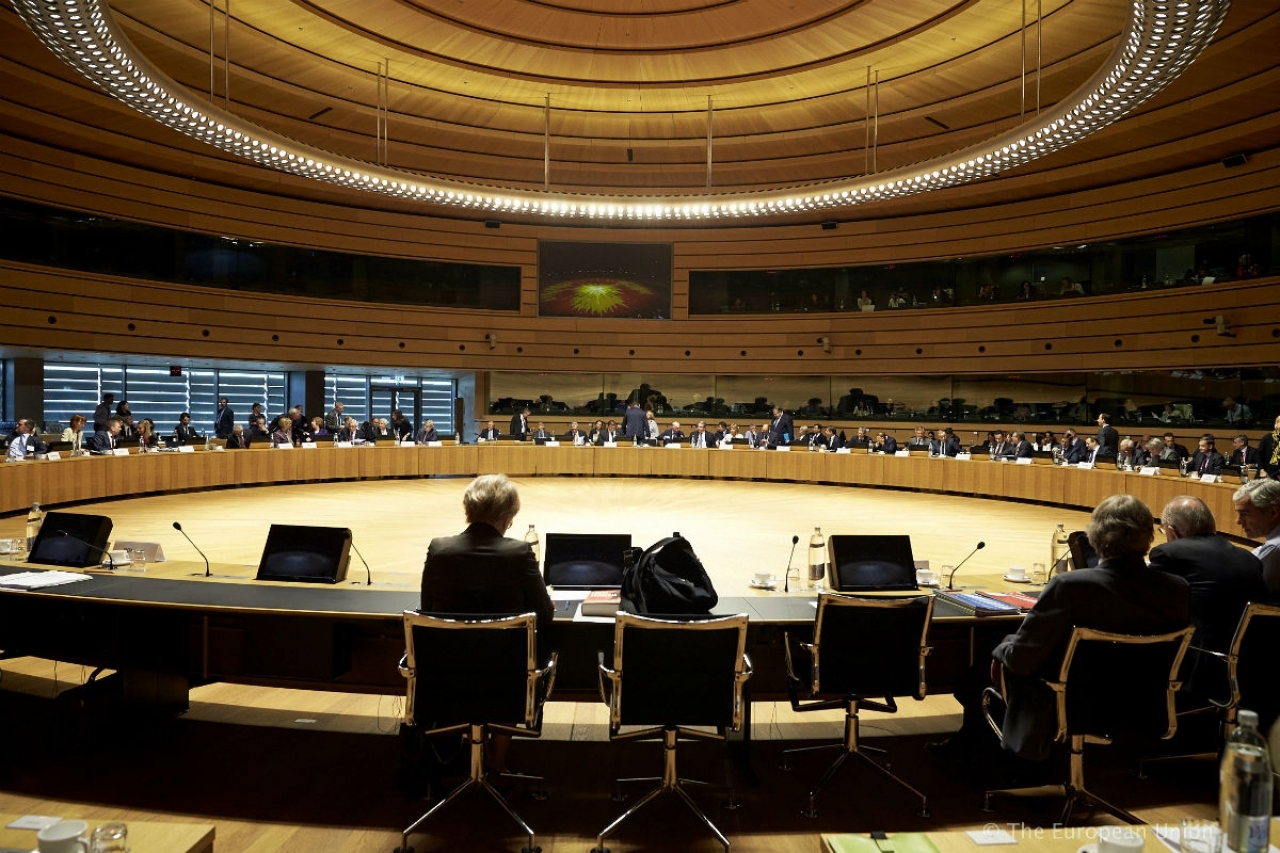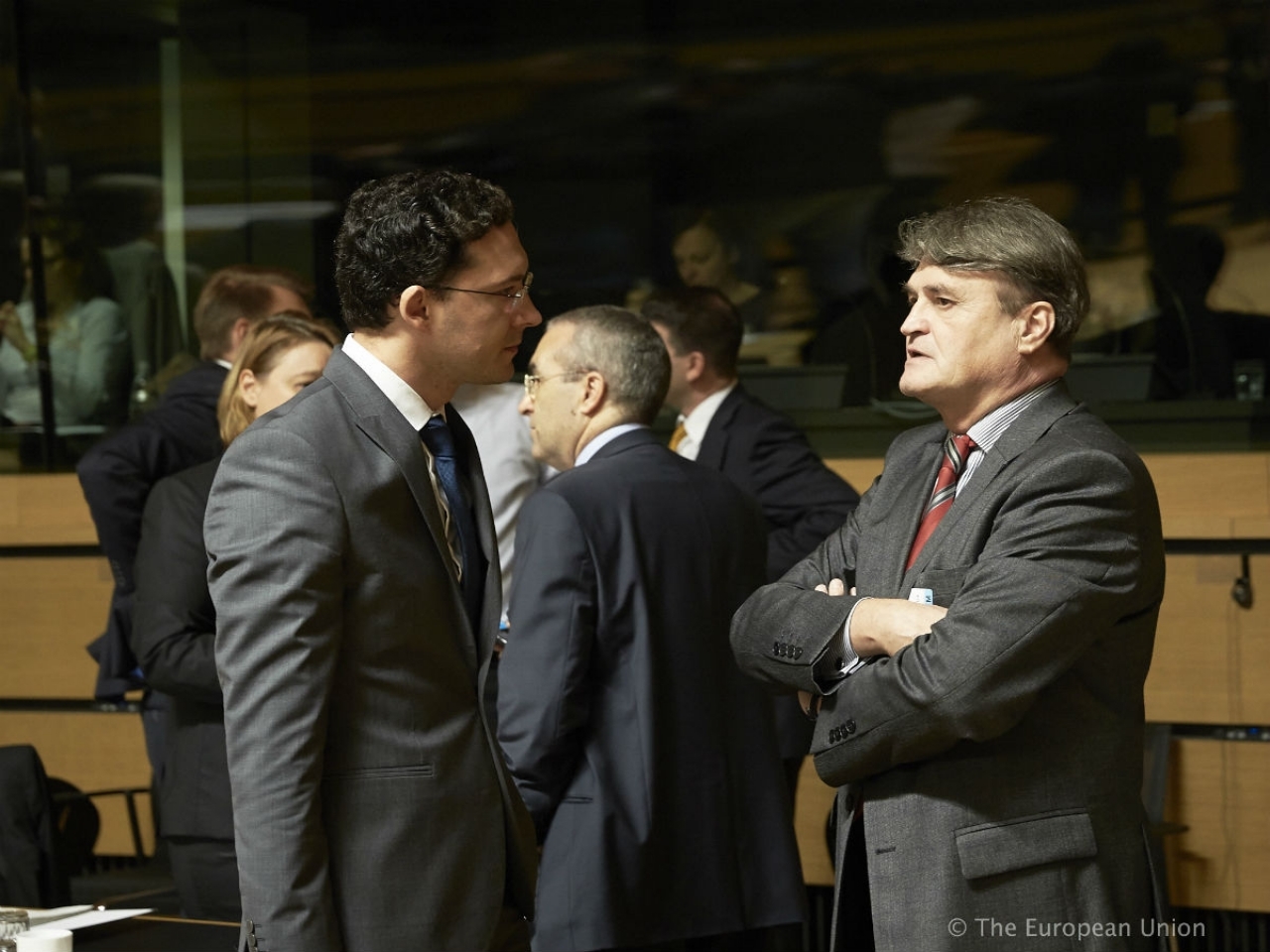EU Foreign Ministers adopted a strategy to combat terrorism in Syria and Iraq and reaffirmed their support for the OSCE Mission in Ukraine
21 October 2014 News
EU Council reaffirmed its commitment to help all countries neighboring Syria and Iraq to deal with the refugee flow, as well as its support for the OSCE Observer Mission to ensure effective and full control of Ukraine on its borders.
Minister Daniel Mitov participated in the Foreign Affairs Council, which was held today in Luxembourg. The EU top diplomats discussed the threat from the "Islamic State of Iraq and the Levant" (ISIL) and other terrorist groups operating in Iraq and Syria. The Council expressed support for the efforts of the international coalition of over sixty States to tackle the threat from ISIL, noting that the military action is part of a wider effort to find the solution. The Council adopted a strategy to combat terrorism in Syria and Iraq, including measures to counter the serious problem of foreign fighters. Foreign Ministers approved further sanctions against individuals and entities linked to the Assad regime to be subject to restrictive measures, and imposed an export ban on jet fuel being used by the regime's air force, which undertakes indiscriminate air attacks against civilians. The Council conclusions reiterated EU's commitment to continue to provide assistance to all the countries neighbouring Syria and Iraq to deal with the refugee flow.
The 28 EU ministers discussed the situation in Ukraine and welcomed the agreements achieved by the Contact Group on 5 September and 19 September 2014 in Minsk. The Council noted the need for all parties to implement their commitments, underlining the Russian Federation's responsibility in this context. Ministers reaffirmed their support for the OSCE Observer Mission to recover the full and effective control over Ukraine's borders. They agreed on the importance of holding fair and democratic elections on 26 October 2014 in Ukraine. Foreign Ministers welcomed the mediation efforts of the European Commission to reach an agreement between Russia and Ukraine on gas supplies, which will also help to ensure EU’s energy security. The Council approved the Operational Plan of the EU Advisory Mission for Civilian Security Sector Reform (EUAM Ukraine).
Another topic on the agenda of today's meeting were the challenges posed by the growth of the Ebola epidemic. The discussion was joined by Commissioner Kristalina Georgieva and EU Commissioner for Health Tonio Borg. Ministers agreed on the need to strengthen international cooperation and provide additional logistical and financial support to the United Nations, as well as support for States and NGOs directly involved in the fight against the disease in the affected countries. The Council underlined the need to strengthen the coordination of national measures at the border points and urged the European Commission to work towards the development of common procedures in this context.
The Council discussed the EU's ability to contribute to a durable cease-fire in the Gaza Strip as part of the international efforts to resume the Middle East peace process. The aim is to give clear guarantees for Israel’s security, which will enable the effective use of funds raised at the Cairo donor conference on 12 October 2014, where the Bulgarian Foreign Minister participated, in order to improve the living conditions of the Palestinians. At the donor conference EU pledged 450 million Euros for the reconstruction of Gaza.
Foreign Ministers discussed the situation in Libya with the participation of the UN Special Envoy to Libya Bernadino León. The Council participants expressed support for UN efforts to achieve a truce between hostile groups and to start an inclusive political process towards the formation of a government of national unity. Ministers sagreed that the instability in Libya poses a direct threat to the EU, through the constantly growing migration pressure and the risk of terrorism. The Council reiterated EU’s commitment to continue supporting Libya in sectors like security, border management and migration control.

